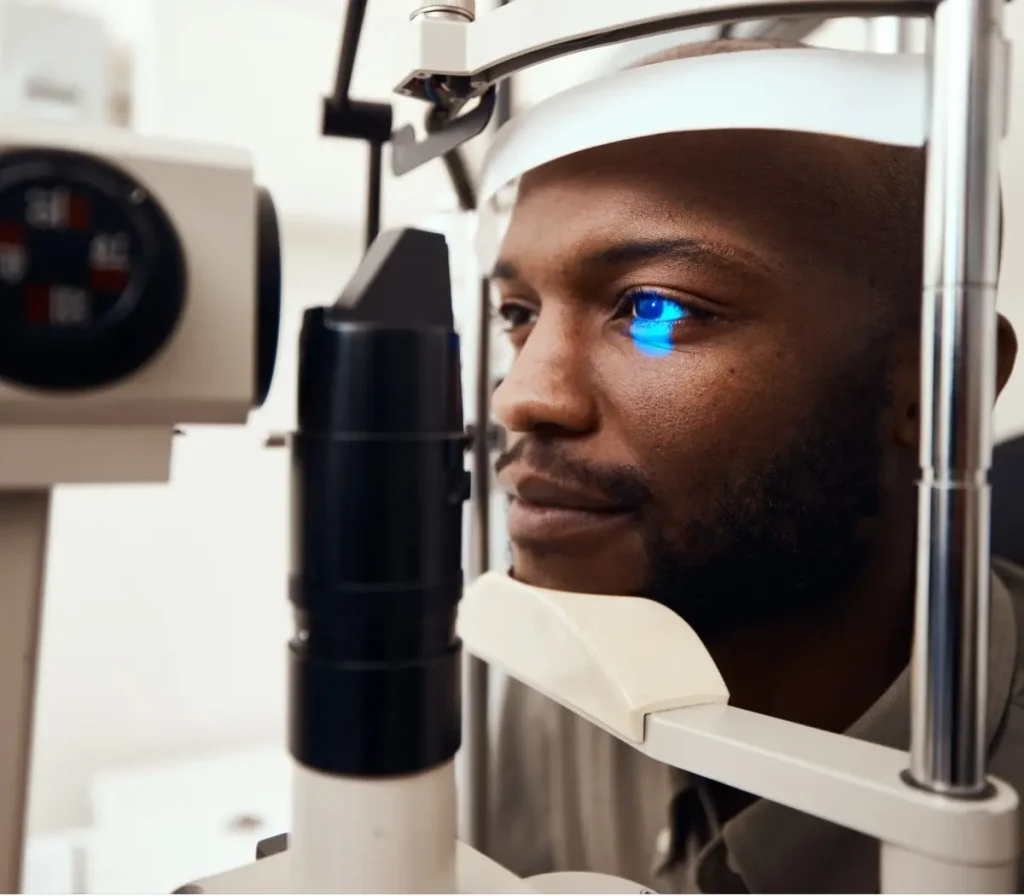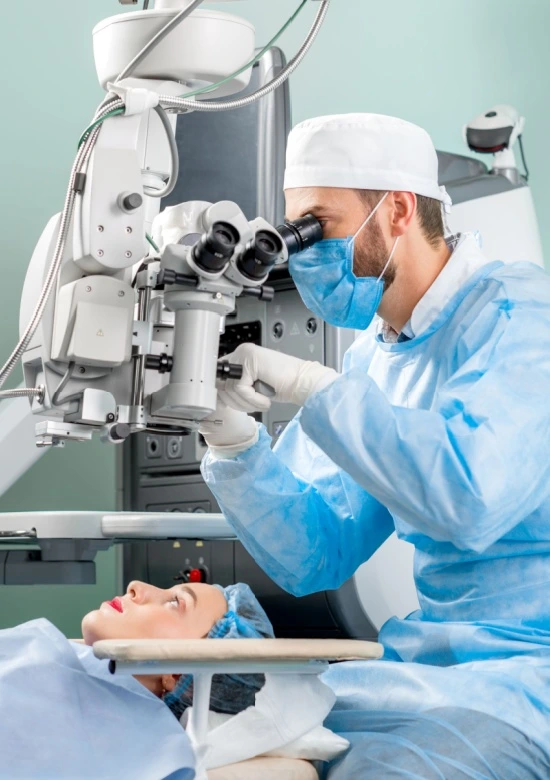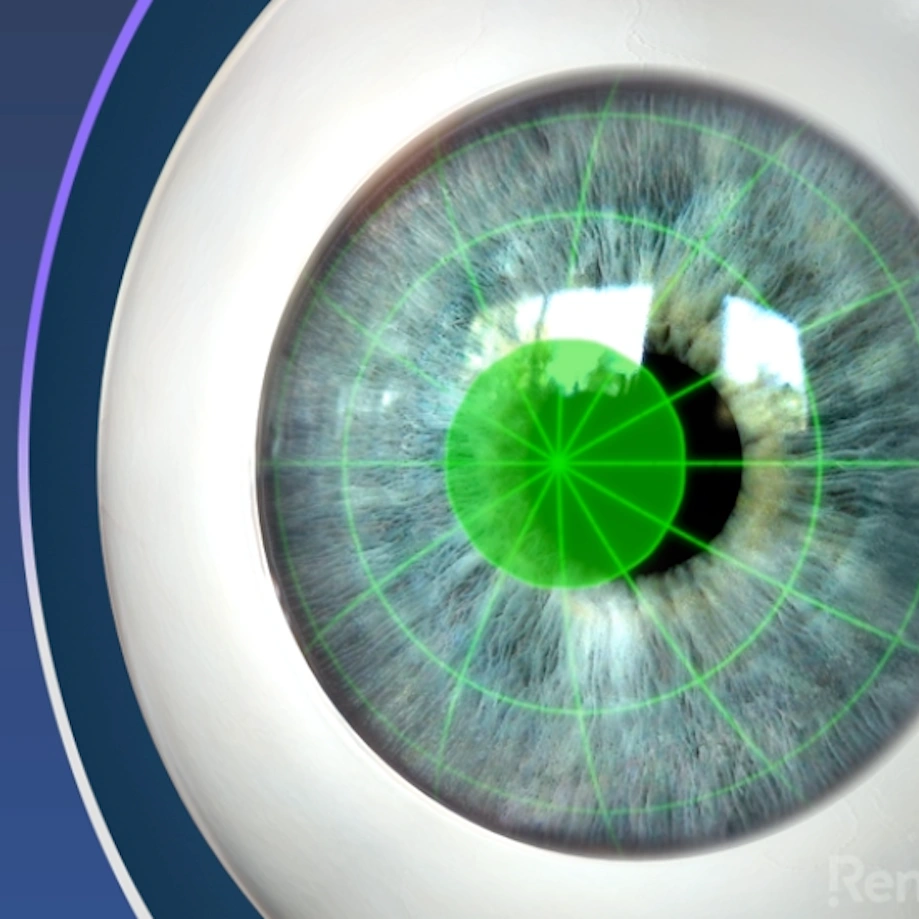
Vision Correction Options
At Cincinnati Eye Institute, our experienced ophthalmologists perform a number of vision correction surgeries that help our patients see the world more clearly and reduce or even eliminate dependence on glasses or contacts.
Choosing the right vision correction procedure depends on a person’s unique vision needs, eye health, and many other conditions. That’s why consulting with CEI’s skilled refractive surgeons is the first step in deciding which vision correction surgery is best for you.
Finding the Right Vision Correction Surgery Option
LASIK
LASIK (laser-assisted in situ keratomileusis) is a laser vision correction procedure that reshapes the cornea to help patients achieve clearer vision. Most patients experience clearer vision immediately after LASIK surgery and are able to return to work and normal daily activities the very next day.
Learn More About LASIK

PRK
Photorefractive keratectomy (PRK) may be an option for patients who are not good candidates for LASIK, including patients who have:
- Dry eye disease
- Thin corneas
- Corneal scar tissue
Unlike LASIK, PRK reshapes the cornea without the creation of a corneal flap. Patients with nearsightedness, farsightedness, and astigmatism may enjoy excellent vision correction with PRK.
While PRK has the same long-term success rate as LASIK, this procedure does have a longer recovery period. Patients may experience mild discomfort and will need to wear a soft “bandage” contact lens for 3-5 days following the brief procedure. Also, while vision changes from LASIK are often immediate, it may take several weeks for PRK patients to enjoy the full results of their treatment.

EVO ICL
EVO ICL (Implantable Collamer® Lens) surgery is often the procedure of choice for patients with myopia and/or astigmatism who are not candidates for LASIK. During this laser vision surgery procedure, the ophthalmologist implants very thin collamer lenses in front of the eye’s natural lens to significantly and permanently improve vision.
Learn More About EVO ICL


What Can Vision Surgery Correct?
Refractive surgery such as LASIK, EVO ICL, PRK, or RLE is ideal for treating most common refractive errors, including:
- Myopia (nearsightedness)
- Hyperopia (farsightedness)
- Astigmatism
- Presbyopia
Treating Presbyopia
Individuals with presbyopia (age-related nearsightedness) may not be good candidates for vision correction with traditional LASIK, PRK, or ICL. However, at Cincinnati Eye Institute we offer a number of surgical treatments that can help individuals with presbyopia reduce their dependence on reading glasses.
Learn More About Presbyopia
Monovision LASIK
Monovision LASIK is designed to improve the way one eye focuses on nearby objects, while the other eye is treated to improve distance vision. When the eyes work together, the brain adapts to present the clearest images possible, reducing the effects of
Trusted Source
Presbyopia Treatment
American Academy of Ophthalmology
Go to Source
presbyopia.
Refractive Lens Exchange
During refractive lens exchange surgery, an ophthalmologist replaces the lens of the eye with an advanced intraocular lens (IOL). This procedure is identical to cataract surgery, except that it is performed on a lens unclouded by cataracts with the aim of treating refractive errors like presbyopia.

Who is a Candidate for Vision Correction Surgery?
The ideal candidate for refractive vision correction with LASIK, PRK, EVO ICL, or RLE:
- Is over the age of 18
- Is nearsighted, farsighted, has astigmatism, or wants to get rid of reading glasses
- Has stable vision
- Has healthy eyes and no history of eye disease
Contact Cincinnati Eye Institute
If you are interested in reducing or even eliminating your dependence on glasses or contact lenses, you may be a good candidate for vision correction surgery at a CEI office in Cincinnati or Northern Kentucky. To learn more and to schedule your personal consultation with an experienced ophthalmologist, please contact us.
1 American Academy of Ophthalmology. Presbyopia Treatment. Available: https://www.aao.org/eye-health/diseases/presbyopia-treatment. Accessed October 8, 2020.
The doctors at Cincinnati Eye Institute have either authored or reviewed the content on this site.



